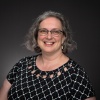How To Be a Neighbor

The parable of the Good Samaritan is familiar to many. It begins with a conversation between a lawyer and Christ in Luke 10. The lawyer asks Christ, “What shall I do to inherit eternal life” (Luke 10:25)? Christ asks him in turn what is written in the law—how the lawyer himself understands God’s law. The lawyer replies that one must love God and love one’s neighbor (Luke 10:27). Jesus Christ responds that the lawyer has stated the law correctly; that if he does this, he will gain eternal life.
But the lawyer is not yet satisfied. He follows up with a question, “And who is my neighbor” (Luke 10:29)? Luke adds here that the lawyer is wanting to justify himself, which suggests that the lawyer already had a list of people whom he considered to be his neighbors—and a list of people who he did not want to consider neighbors.
Christ does not answer the question directly, but instead begins to tell the parable in verse 30: “A certain man went down from Jerusalem to Jericho . . . ” The man falls among thieves, who attack him, steal all he has and leave him for dead. A priest passes by, sees him and makes a wide detour. A Levite passes by and likewise walks around him. And last comes the Samaritan—a person who would have been despised by Jews of the time. The Samaritan sees the injured man and has compassion. He delays his journey, picks the man up, carries him to safety, personally cares for him, and when he cannot delay his journey longer, leaves money with the innkeeper to ensure that the man will be cared for in his absence.
One notable aspect of this parable is that we do not read any conversation between the Samaritan and the injured man. Since the thieves that attacked him “left him for dead,” we might assume that he could not speak. The priest and the Levite saw him, but we do not read that they heard him crying for help. The Samaritan doesn’t seem to have hesitated to see whether this was someone he knew, or someone who he had an obligation to help. He didn’t wait for the man to ask, or stop to calculate whether he could afford the delay. Instead, we simply read that the Samaritan “…came where he was. And when he saw him, he had compassion” (verse 33).
After Christ finishes this parable, He looks at the lawyer and asks, “Which of these three do you think was neighbor to him who fell among the thieves” (Luke 10:36)?
It is interesting here that Christ turns the lawyer’s question around. Instead of asking whose neighbor the injured man was, he asks who was a neighbor to the injured man. And the lawyer responds, “He who showed mercy on him” (Luke 10:37). Christ ends the conversation by saying, “Go and do likewise.”
It is pretty easy for us to fall into thinking like the lawyer: “Who is my neighbor? Who do I actually have to help?” Even when we want to help, the world is so full of so many who need so much that sometimes we feel overwhelmed. We can’t help everyone! And when we feel that way, we may find it easy to slip back into helping . . . well . . . no one.
That is not an option for us as Christians, though. Proverbs 3:27-28 not only cautions us against withholding good from those to whom it is due, it cautions us against delaying: “Do not say to your neighbor, ‘Go, and come back, and tomorrow I will give it,’ when you have it with you.” Micah reminds us, “What does the Lord require of you but to do justly, to love mercy, and to walk humbly with your God” (Micah 6:8)? And Paul, writing to the Galatians, instructs us to “As we have opportunity let us do good to all, especially to those who are of the household of faith” (Galatians 6:10). So, how can we follow Christ’s instruction to “Go, and do likewise”?
How can the parable of the Good Samaritan help us to become the neighbor we should be?
1. Look for the needs in front of you.
Sometimes, the needs of the world can be overwhelming. It can be helpful to narrow that focus a little bit: who do you see frequently? Who needs your mercy? Not every opportunity to do good is going to be lifesaving, like the Samaritan. It might be slowing down to hear someone out when they need to talk. It might be a generous tip for a grouchy, tired waitress. Mercy can look big, like saving a life, intervening in a difficult situation, or organizing a big act of charity. But mercy can also look like skipping the opportunity to complain, picking up a chore that isn’t yours to do, writing an encouraging note to someone you don’t usually write to, or volunteering for that job no one ever wants to do. You don’t have to neglect big opportunities, but don’t neglect the small things that are right by you. A good neighbor keeps an eye out for ways to help.
2. Look for the things you can do. There are plenty of difficulties, trials and injustices in the world that we just can’t change. Even in small ways, we may see needs that seem too big for us to do anything about. Instead of focusing on what you can’t do, look for what you can do. The Samaritan didn’t try to chase down the thieves and bring them to justice, or start a campaign to stamp out thievery on this particular road. He did what he could do: he helped the one who was hurting. He could lift him out of the ditch. He could treat his injuries. He could pay for his care.
You can’t bring someone’s loved one back to life; but you can bring a casserole, or give a hug, or send a card, or make a phone call. You can’t singlehandedly create world peace, but you can rein in your bitter words and choose to give mercy instead of anger. You can’t get your neighbor a job, but you can find ways to help out while they’re searching. Not being able to do everything doesn’t mean you can’t do something. A good neighbor does what he or she can to help.
3. Slow down. In the 1970s, two social psychologists decided to do a study to help determine what makes people more or less likely to help someone. I read a brief synopsis of the study titled “Being a Good Samaritan” at socialpsychonline.com. The study actually used the passage about the Good Samaritan as part of the setup of the experiment. The researchers wanted to know whether religious thought or time pressure affected how likely people were to help someone in need. What they discovered was that thinking about religious topics didn’t seem to make any difference . . . but whether or not someone was in a hurry did. People who were hurrying and thinking about their own need to get somewhere else were much less likely to help someone, even if that person was obviously in need.
Our lives tend to be filled with tasks, many of them with deadlines. I am guilty of being so goal-oriented that I completely forget that there is anything else going on. Sometimes I see someone and immediately launch into the question I had for them or the task I need their help with before I even say “Hello! How are you?” That is a bad habit, and one I am working to overcome. If we want to be a good neighbor, we need to slow down when we interact with others. A good neighbor is concerned about people more than he or she is concerned about the next deadline.
If we want to be a good neighbor, we need to slow down when we interact with others.
4. Be willing to be inconvenienced. Some acts of mercy require almost no time at all; a smile, a kind word, or halting an unkind word take no more than the speed of thought. But being a neighbor often involves meeting a need when you didn’t have room on your schedule for it. Perhaps that is why Proverbs reminded us not to put off helping: our own concerns and routine can be very powerful forces. Yes, sometimes we will run into constraints where we really cannot help. But we need to be careful about putting someone’s need aside because it didn’t fit our schedule.
The priest and the Levite were on a journey, just like the injured traveler was; for whatever reason, they only slowed long enough to cross the road to create more distance when they saw his need. The Samaritan, too, was on a journey: he also had somewhere he needed or wanted to be. But when he saw the injured man, his first reaction was compassion for the man’s need. Only after the man had been rescued and carried to safety did the Samaritan make arrangements to get back on his way. The next time you see a need and are tempted to walk away, consider whether you are walking away because you really can’t help in any way, or whether it is just not convenient. It might not even be a time issue: maybe talking to that person feels awkward. Maybe writing that note feels weird because you don’t typically hang out with that person. Maybe you resent that grouchy waitress for seeming to make your dinner take twice as long. Maybe now is the time to remember that we are to “love mercy, and walk humbly . . . ” If we are walking humbly with God, we remember our own weakness, awkwardness and errors, and it is so much easier to do that good deed. A good neighbor is willing to put another’s need ahead of his or her convenience.
Christ could have simply answered the lawyer by saying, “Look, everyone is your neighbor.” He even could have rebuked the lawyer for his attempt to justify himself. But instead, Christ Himself showed mercy by telling a story and asking the lawyer to draw his own conclusions.
We are a good neighbor when we recognize that anyone with whom we interact becomes our neighbor, and when we show him or her mercy.

